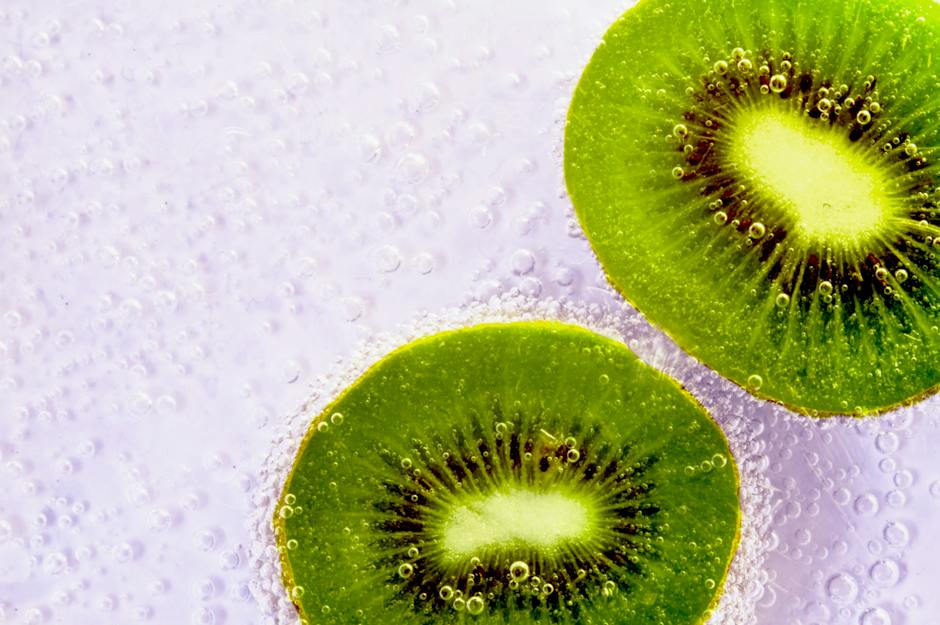The Pros and Cons of Kiwi Fruit: All You Need to Know
Discover the Benefits and Downsides of Adding Kiwi to Your Diet
Kiwi fruit, also known as Chinese gooseberry, is a delicious and nutritious fruit that is packed with essential vitamins, minerals, and antioxidants. Its vibrant green color and unique tangy flavor make it a popular choice for snacking, salads, and smoothies. However, like all foods, kiwi fruit has its own set of advantages and disadvantages that are important to consider. In this article, we will explore the various benefits and drawbacks of consuming kiwi fruit, so you can make an informed decision about whether to include it in your diet.
From its high vitamin C content to its potential allergic reactions, there are several aspects to consider when it comes to kiwi fruit. Whether you're a fan of this exotic fruit or considering adding it to your diet, understanding its pros and cons is essential for making healthy choices. Let's delve into the advantages and disadvantages of kiwi fruit to help you decide whether it's the right choice for you.
Pros
Kiwi fruit is not only delicious but also offers a range of health benefits. From supporting immune function to aiding digestion, this small fruit packs a powerful nutritional punch. Let's explore some of the lesser-known advantages of adding kiwi fruit to your diet.
Rich in Vitamin C
Kiwi fruit is renowned for its exceptionally high vitamin C content, which is essential for boosting the immune system and fighting off infections. A single kiwi provides more than the recommended daily intake of vitamin C, making it a fantastic immunity-boosting fruit.
Aids Digestion
The enzymes present in kiwi fruit, such as actinidin, can aid in the digestion of proteins. These enzymes can help break down food more effectively, potentially reducing symptoms of bloating and discomfort after meals.
Good Source of Fiber
Kiwi fruit is rich in dietary fiber, which is beneficial for digestive health and may help prevent constipation. Fiber also supports heart health and can aid in regulating blood sugar levels.
Antioxidant Powerhouse
Loaded with antioxidants, including vitamin E and polyphenols, kiwi fruit can help combat oxidative stress and reduce the risk of chronic diseases. Antioxidants play a crucial role in maintaining overall health and well-being.
Supports Eye Health
The high content of lutein and zeaxanthin in kiwi fruit contributes to eye health and may help protect against age-related macular degeneration. Including kiwi in your diet can provide a natural boost for your vision.
Low in Calories
For those looking to manage their weight, kiwi fruit is a great choice due to its low calorie and high nutrient content. It can satisfy sweet cravings without significantly impacting your daily calorie intake.
Heart-Healthy Properties
With its potential to lower blood clotting and reduce fat levels in the blood, kiwi fruit offers heart-healthy benefits. Regular consumption may contribute to improved cardiovascular function and overall heart health.
Boosts Immune System
Kiwi fruit contains high levels of vitamin C, which is essential for the proper functioning of the immune system. Regular consumption of kiwi fruit can help strengthen the body's defenses against common illnesses such as colds and flu.
Promotes Skin Health
The high antioxidant content in kiwi fruit can help combat free radical damage, which is beneficial for promoting healthy and youthful-looking skin. The vitamins and minerals in kiwi fruit also contribute to overall skin health, aiding in the repair and maintenance of tissues.
Supports Iron Levels
Kiwi fruit is a surprisingly good source of iron, an essential mineral crucial for producing hemoglobin in the blood. Hemoglobin is responsible for transporting oxygen throughout the body, making iron intake vital for energy levels and overall functionality. Including kiwi in your diet can help boost your iron levels, particularly for those who follow a vegetarian or vegan diet, as fruit can be a great complement to traditional iron sources like meat. Additionally, the vitamin C content in kiwi enhances iron absorption, making it an excellent option for improving overall iron bioavailability from plant-based foods.
Missing a pro?
Let us know which pro you are missing!
Cons
While kiwi fruit boasts numerous health benefits, it's important to be aware of its potential downsides. From allergic reactions to its acidity, there are certain aspects to consider before adding kiwi to your diet. Let's delve into the possible disadvantages of consuming kiwi fruit.
Allergic Reactions
Some individuals may be allergic to kiwi fruit, leading to symptoms such as itching, swelling, and even potentially life-threatening anaphylaxis. Those with known fruit allergies or a history of oral allergy syndrome should exercise caution when consuming kiwi.
Acidity and Oral Health
The high acidity of kiwi fruit can erode tooth enamel over time, potentially leading to dental sensitivity and decay. It's advisable to rinse your mouth with water after consuming kiwi to minimize its impact on dental health.
Oxalate Content
Kiwi fruit contains oxalates, which can crystallize and lead to kidney stones in susceptible individuals. Those with a history of kidney issues or a predisposition to kidney stone formation should moderate their kiwi consumption.
Potential for Cross-Reactivity
Due to its botanical relationship with certain other fruits, such as bananas and avocados, some individuals may experience cross-reactivity. This means that those allergic to one of these fruits may also react to kiwi, leading to allergic symptoms.
Effect on Medications
The high vitamin K content in kiwi fruit may interact with blood-thinning medications, impacting their effectiveness. Individuals on anticoagulant therapy should consult their healthcare provider before significantly increasing their kiwi intake.
Potential Oral Allergen
Some people may experience allergic reactions to kiwi fruit when consumed, resulting in symptoms such as itching, swelling, and irritation in the mouth. It is important to be cautious when consuming kiwi fruit, especially for individuals with known fruit allergies.
High FODMAP Content
Kiwi fruit contains high levels of FODMAPs (fermentable oligosaccharides, disaccharides, monosaccharides, and polyols), which can exacerbate digestive issues for individuals with irritable bowel syndrome (IBS) or other gastrointestinal conditions. Consumption of kiwi fruit may lead to bloating, gas, and discomfort in sensitive individuals.
Missing a con?
Let us know which con you are missing!
Conclusion
In conclusion, kiwi fruit offers a wide array of health benefits, ranging from immune support to heart health. However, it's crucial to be mindful of its potential drawbacks, especially for those with allergies or specific health concerns. Like any food, moderation and individual considerations are key when incorporating kiwi fruit into your diet. By weighing the pros and cons, you can make an informed decision about whether kiwi fruit is the right choice for you.
What do you think?
Do you think the pros outweigh the cons?







